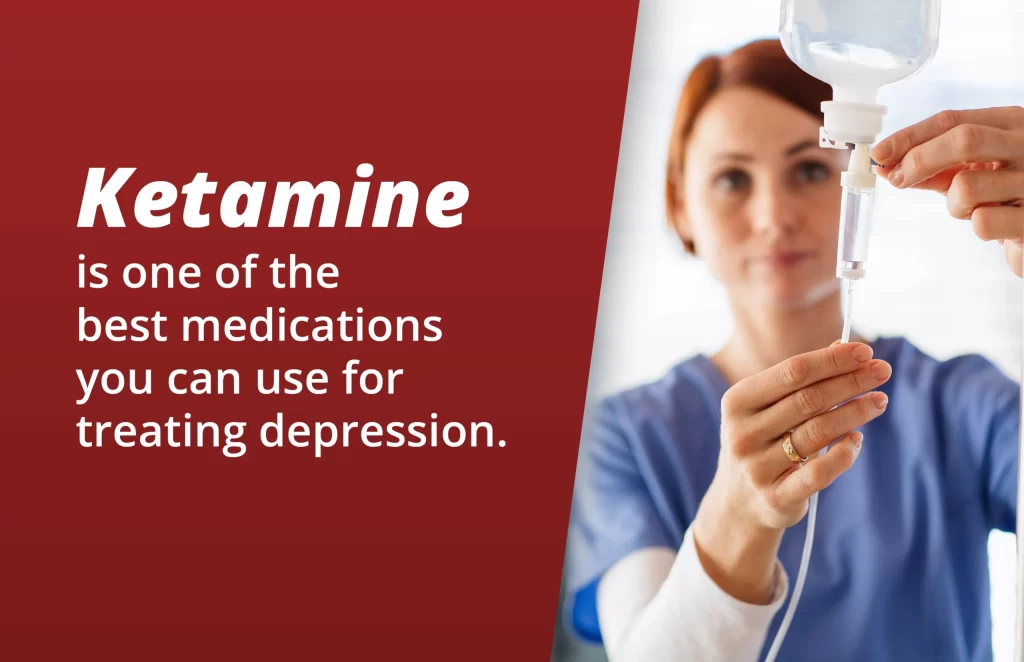Does ketamine treat depression? this is the question that many people ask whenever a conversation about ketamine comes up. The simple answer to this question is, Yes. If taken in the right dosage following a certain prescription.
Depression is a complex mental health condition that affects millions of people worldwide. While traditional antidepressant medications have been effective for many individuals, there is a subset of patients who do not respond adequately to these treatments.
However, in recent years, ketamine has emerged as a promising alternative for treating depression, particularly in cases of treatment-resistant depression. In this blog post, we will delve into the topic of ketamine for depression, exploring its potential as a treatment option and highlighting the latest advancements in ketamine therapy.
Understanding Ketamine for Treatment-Resistant Depression:
Treatment-resistant depression refers to a form of depression that does not respond to conventional antidepressant medications, psychotherapy, or other standard treatment interventions. This condition can be debilitating and significantly impact an individual’s quality of life. For those who have not found relief through traditional approaches, alternative treatments such as ketamine therapy offer a glimmer of hope.
The Potential of Ketamine to treat Depression:
Ketamine is a dissociative anesthetic that has been used for decades primarily in surgical and emergency medicine settings. However, buy ketamine for sale, research has shown that ketamine can also have rapid and robust antidepressant effects, even in individuals who have not responded to other treatments.
Furthermore, these effects are typically experienced within hours to days after administration, making ketamine a potential game-changer in the field of depression treatment.
Mechanism of Action:
The exact mechanisms through which ketamine alleviates depression are not yet fully understood. However, it is believed that ketamine acts on the brain’s glutamate system, specifically by blocking N-methyl-D-aspartate (NMDA) receptors. This process triggers a cascade of events that ultimately leads to the release of certain molecules, such as brain-derived neurotrophic factor (BDNF), that promote the growth and connectivity of neurons. These neuroplasticity effects are thought to play a crucial role in the antidepressant properties of ketamine.
Ketamine Treatment Approaches:
Ketamine therapy for depression typically involves intravenous (IV) infusions or nasal spray formulations administered in a controlled clinical setting. The dosing and frequency of treatments may vary depending on the individual and the severity of their depressive symptoms. Some clinics also offer maintenance or booster sessions to prolong the therapeutic effects of ketamine.
Latest Advances in Ketamine Treatment:
Researchers and clinicians continue to explore and refine the use of ketamine for depression. One exciting development is the investigation of ketamine analogs or derivatives that retain the antidepressant effects while minimizing potential side effects, such as dissociation or hallucinations. Additionally, efforts are underway to optimize dosing protocols, determine long-term efficacy, and explore the potential use of ketamine in combination with other treatments, such as psychotherapy.
Considerations and Future Directions:
While ketamine treatment shows remarkable promise, it is important to note that it is not a one-size-fits-all solution. As with any medical intervention, there are potential side effects and considerations to take into account. Additionally, ketamine treatment for depression is not yet widely available or covered by insurance, making it inaccessible for many individuals. As research progresses, it is hoped that the accessibility and affordability of ketamine therapy will improve.
Conclusion:
Ketamine therapy represents a significant advancement in the treatment of depression, particularly for those with treatment-resistant depression. Its rapid and robust antidepressant effects have provided relief to


Hi, this is a comment.
To get started with moderating, editing, and deleting comments, please visit the Comments screen in the dashboard.
Commenter avatars come from Gravatar.